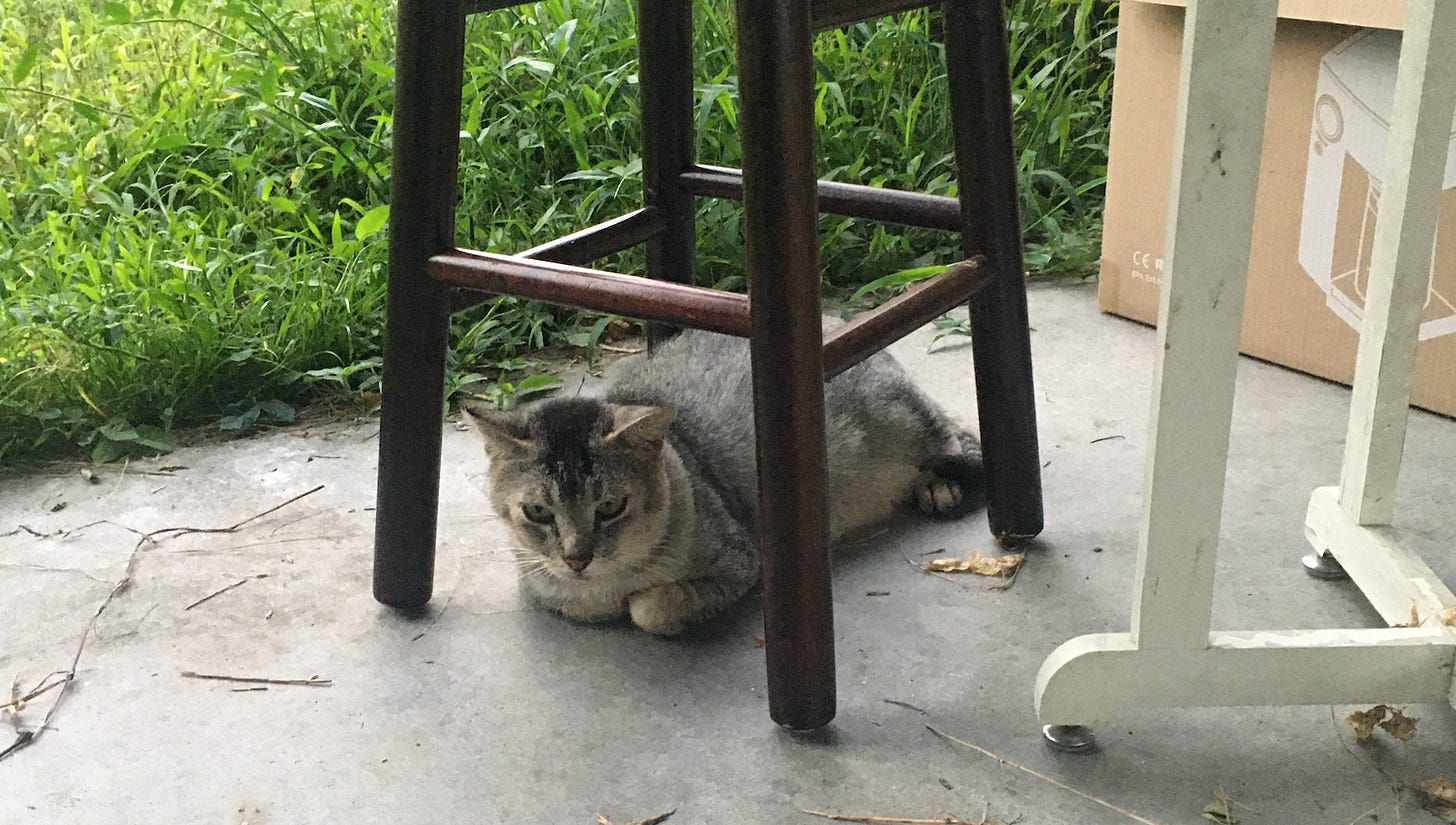My Spiritual Evolution (first 601 words)
The first section of a nine-section essay on spirituality.
Here are the first 601 words of a currently 7919-word essay by me titled “My Spiritual Evolution.” I’ve been working on this since December. I had pitched it to Paris Review Daily as a 2-3k-word piece, and it eventually got too long for them. It’ll be finished in a few days. I’m going to send it to Granta and maybe UnHerd. It’ll be the last essay in my in-progress essay collection, which I want to title either Dystopia or Reasons to Live or Life in Wartime, I’m not sure yet—opinions on these titles will be appreciated.
1
Materialism, the theory that only matter exists, emerged around 2,500 years ago in India and Greece, partly as a reaction against religious dogmatism. This relatively new worldview has itself become dogmatic in the past century or so, dismissing older, spiritual ontologies—which assert the existence of an immaterial reality that is more fundamental than the material world—as superstitious and unscientific.
I was born into American materialism in the 1980s. My Taiwanese immigrant parents weren’t religious or openly spiritual. We didn’t discuss death or the afterlife. At age three, strapped into a child seat in my parents’ car, I repeatedly cried out, “I don’t want to die!” when my dad braked hard to avert an accident. I seem to have viewed death as a painful transition to a lonely oblivion. I’d probably heard of it on TV. My parents didn’t mention it to me until I was six, when my mom’s dad died.
My mom and I flew to Taiwan for the funeral. A large black moth, which had arrived the day my grandfather died, was on his coffin above his head. It stayed there for seven days, until the day of the burial, when I carried the then-dead moth in a box to the cemetery. In my thirties, my mom told me her dad had worshiped the Daoist deity Xuánwǔ, and that the moth was a rare species which gathered at the deity’s temple every year around the deity’s birthday. “There are many supernatural things we cannot explain,” said my mom in an email about this.
When I was a child, however, my mom didn’t discuss paranormal phenomena with me. My dad, a physics professor, dismissed nonmaterialist viewpoints. School and culture also taught that only matter “matters.” Except for a few openly Christian peers whom I viewed as superstitious—and once or twice when adolescent-me attended an all-Chinese/Taiwanese church to be around kids my age, and late in middle school when I began to listen to punk bands which sometimes criticized religious dogma—I didn’t encounter spirituality, the study of the soul, during my childhood.
By high school, I’d grown indifferent to death, which I now vaguely imagined to be a dreamless sleep. As a gloomy, alienated teenager, I was more concerned about life, specifically my own life. This continued into my twenties, when I often joked, with varying amounts of seriousness, that I wished I were dead. My dissatisfaction with life encouraged me to search for a deeper, more enchanting reality, but nothing I read or experienced was able to non-temporarily convince me there was one, and so I remained by default a materialist, like seemingly all my peers.
The subcultures I’d gotten involved in by my late twenties—literary fiction, mass media, recreational drug use—generally did not believe in souls or a spirit world. The absence of these beliefs renders life absurd for many people, leading at best to a playful sort of existential humanism or a dark-humor-tempered engagement with the arts, and at worst to suicidal depression, nihilistic hedonism, and the endless pursuit of money and power. I coped with the meaninglessness of existence by creating and consuming existential art and then, when that wasn’t enough, by taking drugs.
In my thirties, recovering from a three-year pharmaceutical drug addiction, I finally began to encounter undeniable-seeming evidence for the existence of the higher-dimensional spirit world that cultures throughout history have centered in their worldviews, and now at 41 I believe I’m an embodied soul that death will release into that mysterious reality. This essay examines the two main factors in my spiritual development: my DMT trips and the near-death experience literature.





I think ‘reasons to live’ is the best and most poignant of the 3.
Strong beginning let us know when it's published and where.